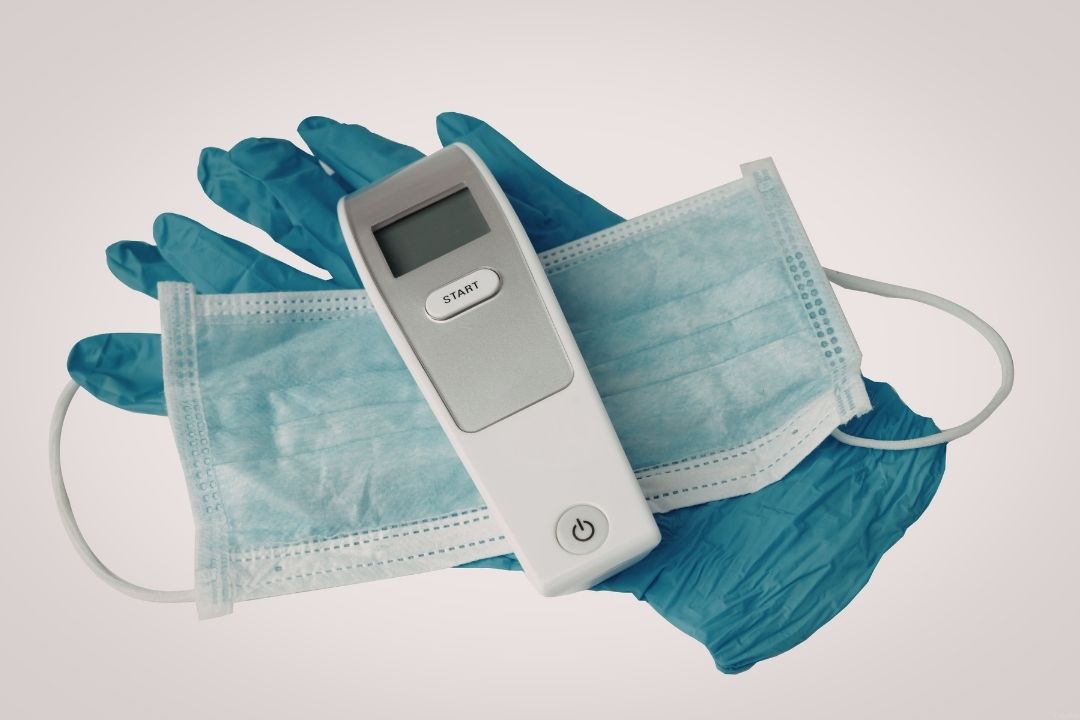
Infection control has always been a vital component of healthcare, but in the wake of global pandemics and rising awareness of healthcare-associated infections (HAIs), it’s more important than ever. At the center of this effort is a specialized professional known as the infection control nurse. These nurses are essential in preventing and managing the spread of infections in hospitals, clinics, and long-term care settings.
In this guide, we’ll explore what an infection control nurse does, the skills they need, how to become one, and why their role is increasingly crucial in today’s healthcare environment.
What is an infection control nurse?
An infection control nurse is a registered nurse (RN) who specializes in preventing and controlling the spread of infectious diseases within healthcare settings. These professionals serve as a vital link between clinical staff, administrators, and public health authorities, ensuring that safety protocols are in place and followed consistently.
They don't typically provide direct patient care but work behind the scenes to investigate outbreaks, monitor infection trends, and implement safety protocols. Infection control nurses are commonly employed in hospitals, outpatient surgical centers, long-term care facilities, and public health departments.
Why infection control nurses are essential in healthcare
Infection control nurses are crucial for ensuring patient safety and preventing the spread of dangerous pathogens. Healthcare-associated infections affect approximately 1 in 31 hospital patients at any given time, according to the CDC. These infections can be deadly and are often preventable with the right protocols in place.
Infection control nurses help:
- Reduce HAIs like MRSA, C. diff, and catheter-associated infections
- Implement strategies to manage antibiotic resistance
- Ensure compliance with federal and state regulations
- Monitor and mitigate public health threats, such as influenza or COVID-19 outbreaks
By identifying and controlling infection risks, these nurses improve patient outcomes and reduce the financial and legal burdens on healthcare organizations.
Core responsibilities of an infection control nurse
The day-to-day duties of an infection control nurse can vary depending on the setting, but generally include:
- Surveillance and data analysis: Monitoring infection rates and analyzing patterns to detect potential outbreaks
- Policy development: Creating and updating infection prevention and control protocols in accordance with CDC and WHO guidelines
- Education and training: Teaching healthcare workers best practices in hand hygiene, PPE usage, and infection containment
- Outbreak investigation: Responding to signs of infection outbreaks, conducting investigations, and identifying root causes
- Reporting and compliance: Ensuring proper documentation and reporting to local health departments and regulatory agencies
- Collaboration: Working with interdisciplinary teams, including doctors, administrators, and public health officials
In larger facilities, infection control nurses may also lead committees or task forces dedicated to infection prevention efforts.
Skills and traits of an effective infection control nurse
Not every RN is cut out for infection control. This specialty demands a unique mix of analytical, communication, and leadership skills.
Key traits and skills include:
- Analytical mindset: Ability to interpret infection data, identify trends, and act quickly
- Strong communication: Teaching staff, updating protocols, and explaining findings clearly to a variety of stakeholders
- Attention to detail: Small mistakes in infection control can have serious consequences
- Leadership: Guiding others in adopting and adhering to infection prevention measures
- Adaptability: Being flexible during emergencies or outbreaks where fast changes are necessary
Infection control nurses also benefit from having a solid foundation in microbiology, epidemiology, and public health.
How to become an infection control nurse
The path to becoming an infection control nurse involves formal education, hands-on experience, and specialized certification. Here’s a step-by-step guide:
Step 1: Earn a nursing degree
You’ll need an associate degree in nursing (ADN) or a bachelor of science in nursing (BSN) from an accredited program. A BSN is preferred by many employers, especially in hospitals.
Step 2: Obtain RN licensure
After graduation, you must pass the NCLEX-RN exam to become a licensed registered nurse.
Step 3: Gain clinical experience
Most infection control positions require at least 2–3 years of nursing experience. Experience in areas like critical care, surgical units, or emergency rooms can provide a strong foundation for understanding infection risks.
Step 4: Pursue specialized training or education
Many RNs take additional coursework in infection control, epidemiology, or public health. Some graduate-level nursing programs also offer infection prevention tracks.
Step 5: Get certified
While not always required, certification is highly recommended and often preferred. The most recognized credential is the Certification in Infection Control (CIC) offered by the Certification Board of Infection Control and Epidemiology (CBIC).
Certification and continuing education
The CIC certification demonstrates advanced competency in infection prevention and control. To be eligible, candidates must have a post-secondary degree and relevant experience in infection control.
Key facts about the CIC:
- Exam-based: Includes topics such as surveillance, program management, and outbreak investigation
- Renewal: Every 5 years through exam or continuing education
- Recognition: Widely respected across healthcare facilities in the U.S. and Canada
Ongoing education is vital in this field. Infection control nurses must stay current with emerging pathogens, treatment protocols, and regulatory changes by attending workshops, webinars, and professional conferences.
Infection control nurse salary and job outlook
Infection control nursing is not only a meaningful career—it’s also one with strong job prospects and competitive pay.
- Average salary: Infection control nurses in the U.S. earn around $94,445 annually, with top earners making over $150,000 depending on location and experience.
- Highest paying states: California, New York, and Massachusetts often offer higher salaries due to demand and cost of living.
- Growing demand: According to the Bureau of Labor Statistics, the overall employment of registered nurses is projected to grow by 6% through 2032. Infection control is expected to see even faster growth due to increasing awareness of infection risks and regulatory scrutiny.
- Increased visibility: Events like COVID-19 have highlighted the importance of infection control roles, creating more opportunities in hospitals, government, and consulting.
Infection control nurse vs. epidemiologist
Both infection control nurses and epidemiologists work to prevent the spread of disease, but their training, roles, and scopes of work differ.
- Infection control nurses typically work within healthcare facilities, developing policies and responding to in-hospital outbreaks.
- Epidemiologists often work in public health departments or research institutions, focusing on population-level disease trends and large-scale data analysis.
If you enjoy patient safety and education but want to stay connected to the clinical side of healthcare, infection control nursing may be the better fit.
Pros and cons of becoming an infection control nurse
Like any nursing specialty, infection control has its benefits and challenges.
Pros:
- High-impact role that improves patient safety
- Opportunities for leadership and professional growth
- Diverse work settings, including hospitals, schools, and government agencies
- Growing demand and job security
Cons:
- Can be stressful, especially during outbreaks or regulatory audits
- Requires ongoing education and credentialing
- May involve limited direct patient care, which some nurses miss
Tips for succeeding in infection control nursing
To thrive in this field, infection control nurses must be proactive and resourceful. Here are some practical tips:
- Stay informed: Regularly review updates from the CDC, WHO, and other authorities
- Build relationships: Collaborate closely with staff, administrators, and external agencies
- Use data effectively: Leverage software and tools to track infection patterns
- Educate with empathy: Deliver training in a way that encourages compliance, not resistance
- Join a professional organization: Groups like the Association for Professionals in Infection Control and Epidemiology (APIC) offer networking, certification prep, and continuing education
Is infection control the right nursing specialty for you?
Infection control nurses are unsung heroes in modern healthcare. By preventing the spread of infections and guiding safety protocols, they protect patients, healthcare staff, and entire communities. Whether responding to an outbreak or leading educational initiatives, these nurses bring science, leadership, and compassion to their work every day.
If you’re a registered nurse who’s passionate about safety, public health, and continuous learning, becoming an infection control nurse could be the perfect next step in your career.





